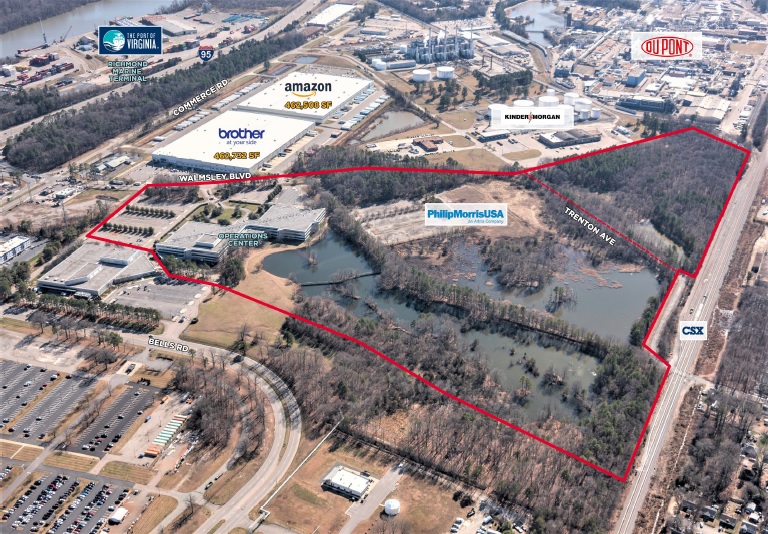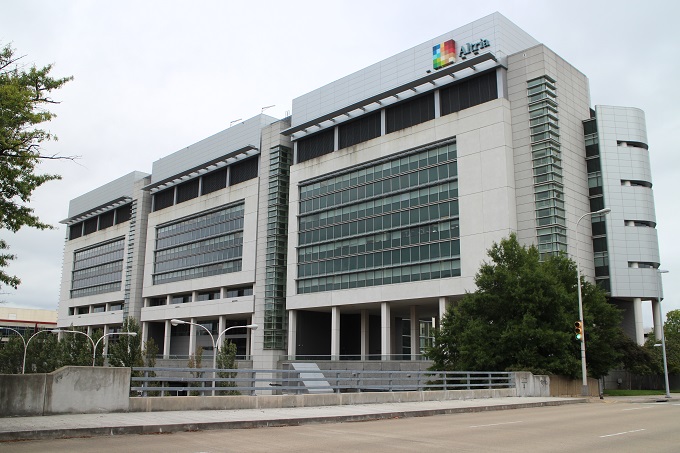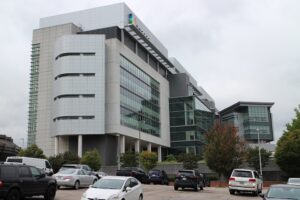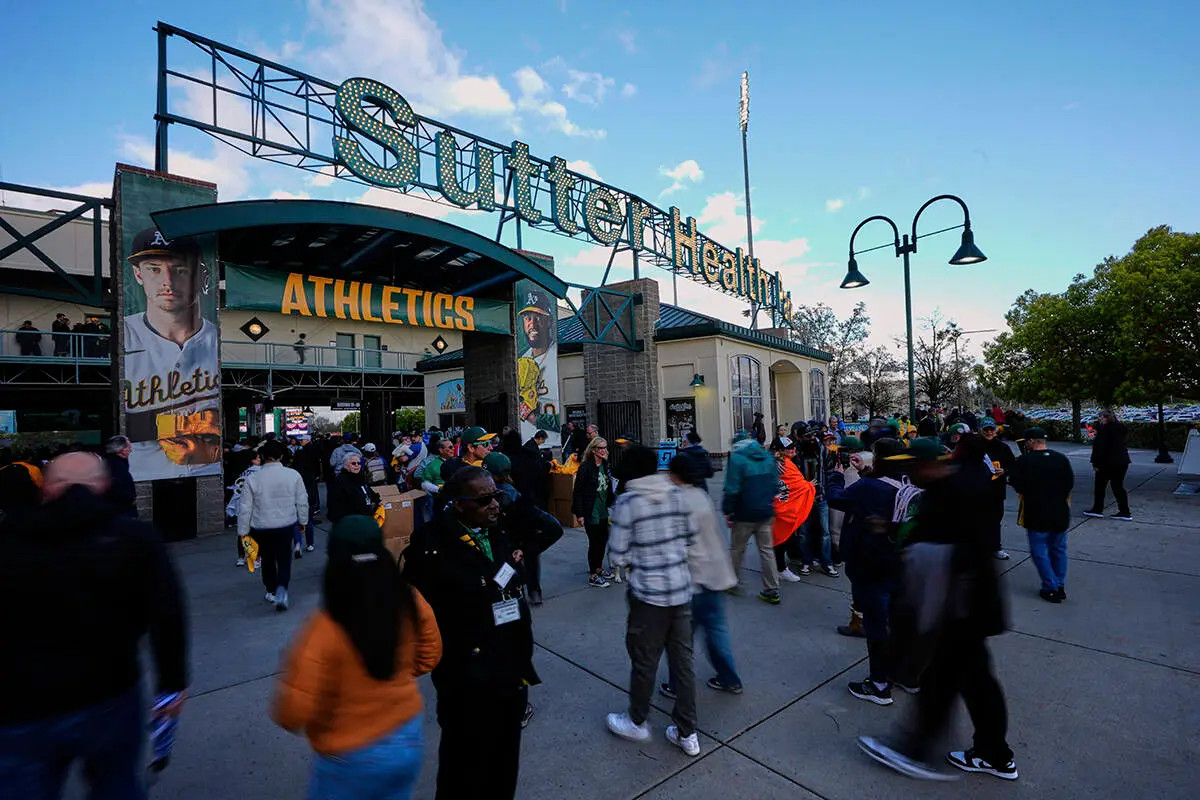As it stands to lose a substantial piece of Altria-owned property from its tax rolls downtown, the City of Richmond also recently paid millions to the tobacco giant for a sizable Southside site that’s planned for a new public park and economic development.
The city announced Tuesday the closing of its $5.5 million purchase of 96 acres off Walmsley Boulevard.
The land makes up the bulk of the site that was twice floated for a casino development. The $5.5 million purchase price is part of $10 million that City Council budgeted last year to advance economic development in South Richmond, following the casino plan that city voters rejected in two referendums.
The transaction with seller Philip Morris USA closed March 27, a city spokesperson said. The sale was not yet reflected in the city’s online property records this week. The property was most recently assessed by the city at over $5.6 million.
The city’s deal with Philip Morris had initially required that it close on the purchase by Dec. 30, 2024. City spokesperson Michael Hinkle said the closing date was pushed out, with both parties’ agreement, to ensure that disconnection of shared utilities would coincide with demolition this year of the vacant Philip Morris Operations Center building on the site. The deal requires that the city demolish that building by December.
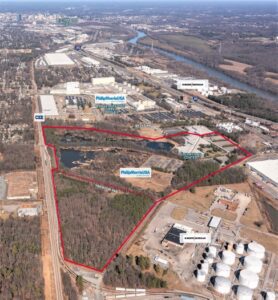
A northward view of the site, which is just south of the Philip Morris Manufacturing Center complex.
Hinkle said Philip Morris also had requested agreements for several utility access easements on the land the city purchased, to accommodate continued operations at its Semiworks building on an adjacent 11-acre parcel not included in the sale.
The purchase involves property at 4700 Trenton Ave. and a portion of 2001 Walmsley Blvd.
The city plans to have a market study conducted to determine “best and highest” uses for the 45-acre portion of the site slated for economic development. Administrators have said the city would solicit proposals from developers for a project that would spur commercial and civic growth and include a workforce development component.
A park would fill another 45 acres of the site, while an east-west road connecting Walmsley to Commerce Road and Richmond Highway would take up the remaining 6 acres. Designs and concepts for the park and connector road are also to be determined. Planning for the park would include community engagement that’s expected to start later this year.
The property is just south of the Philip Morris Manufacturing Center complex, which remains in operation.
VCU approved to buy downtown Altria building
Meanwhile, Altria appears set to sell its Center for Research and Technology building downtown to Virginia Commonwealth University, which received approval to make the purchase from Gov. Glenn Youngkin last week. The General Assembly reconvened Wednesday to consider Youngkin’s amended budget.
VCU and state officials approached the tobacco giant last year about a potential sale of the building at 600 E. Leigh St.
VCU plans to use the nine-story, 450,000-square-foot building to house some of its academic health sciences programs, research functions for Massey Comprehensive Cancer Center, and the university’s Medicines for All Institute, among other potential uses.
Altria has said it would likely construct a new research facility at the Philip Morris Southside complex if the deal with VCU goes forward.
The parties have not disclosed an agreed-to purchase price. In addition to the main building, the complex includes a 350,000-square-foot parking deck, 25,000-square-foot central utilities building and a pedestrian bridge.
VCU has said construction of a new research facility of the Altria building’s size would likely cost more than $700 million and take 10 to 12 years.
The 4.3-acre main building property is assessed by the city at nearly $275 million, and the 3-acre parking deck parcel is assessed at over $28 million for a total combined assessment of $303 million.
The sale would make the property tax-exempt like most other real estate owned by the university and the health system. City administrators have said that would wipe out more than $3 million in annual real estate tax revenue the city receives from the Altria property, which is the city’s second-largest tax-generating property after the Dominion Energy tower on Canal Street.
Richmond and VCU Health have been butting heads during the past year over owed real estate tax payments stemming from the failed redevelopment of Richmond’s nearby former Public Safety Building site. The state budget includes language that would allow the health system to stop making the annual payments, which would total nearly $56 million if paid in full over 25 years.
The payments were included in VCU Health’s agreement with Richmond and the project’s developer to ensure the city would receive real estate tax revenue from the Public Safety property.
The city has said the loss of the Altria property from Richmond’s tax rolls and the roughly $2 million Public Safety tax payment from VCU Health would equate to about a penny and a half of Richmond’s real estate tax rate.
In his budget presentation to City Council last week, Mayor Danny Avula said Richmond misses out on $63 million in annual revenue because of the amount of tax-exempt property in the city owned by state and federal government entities, including VCU and VCU Health.


